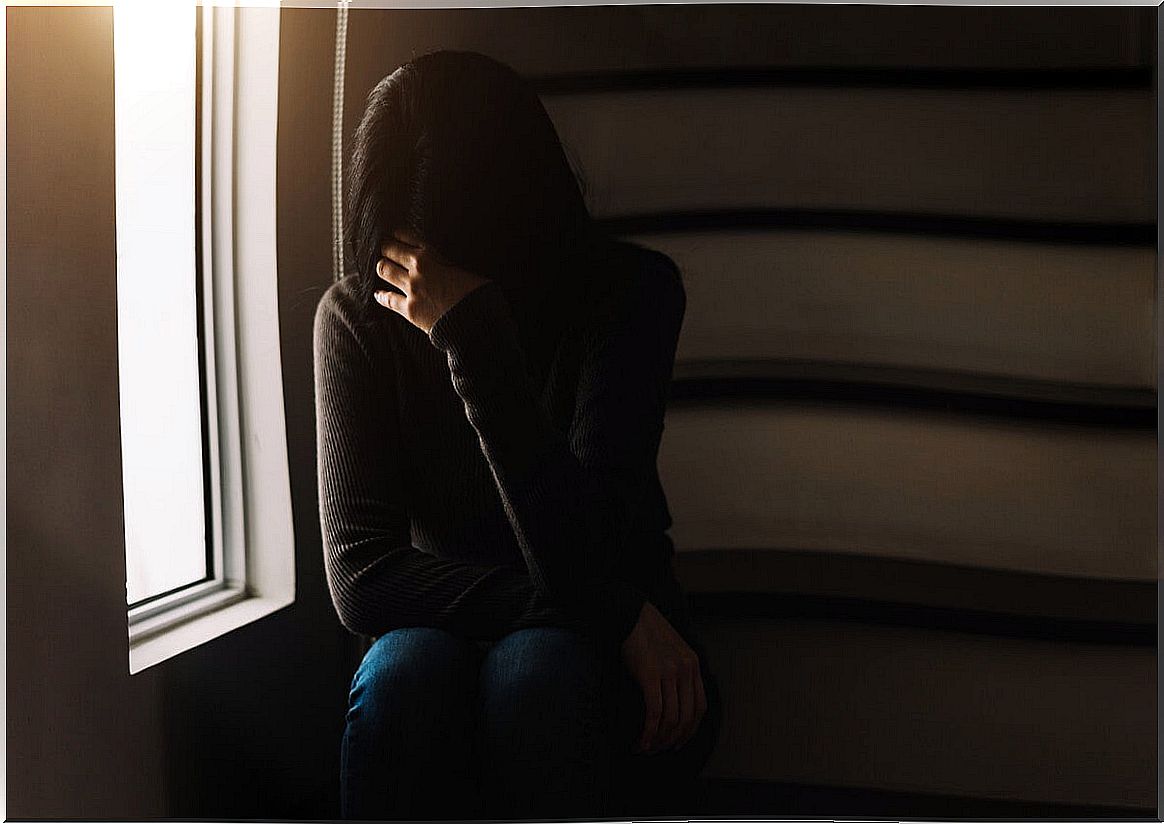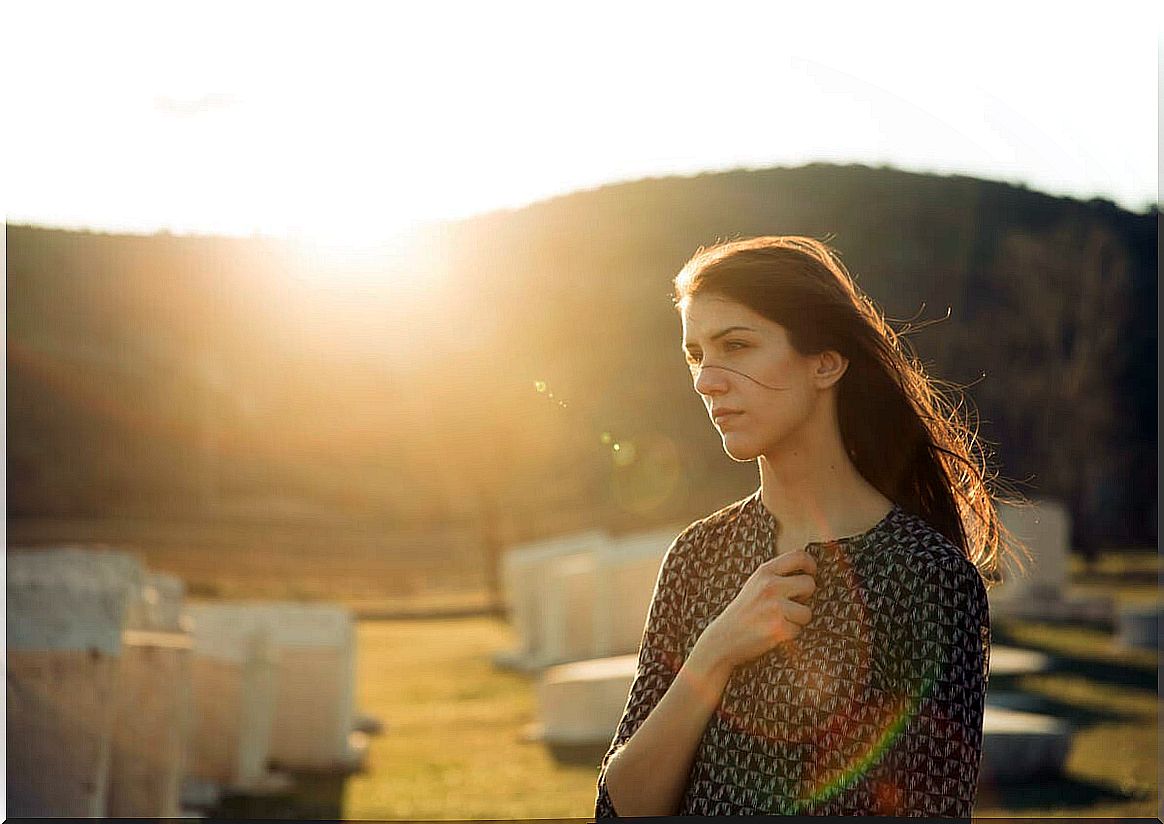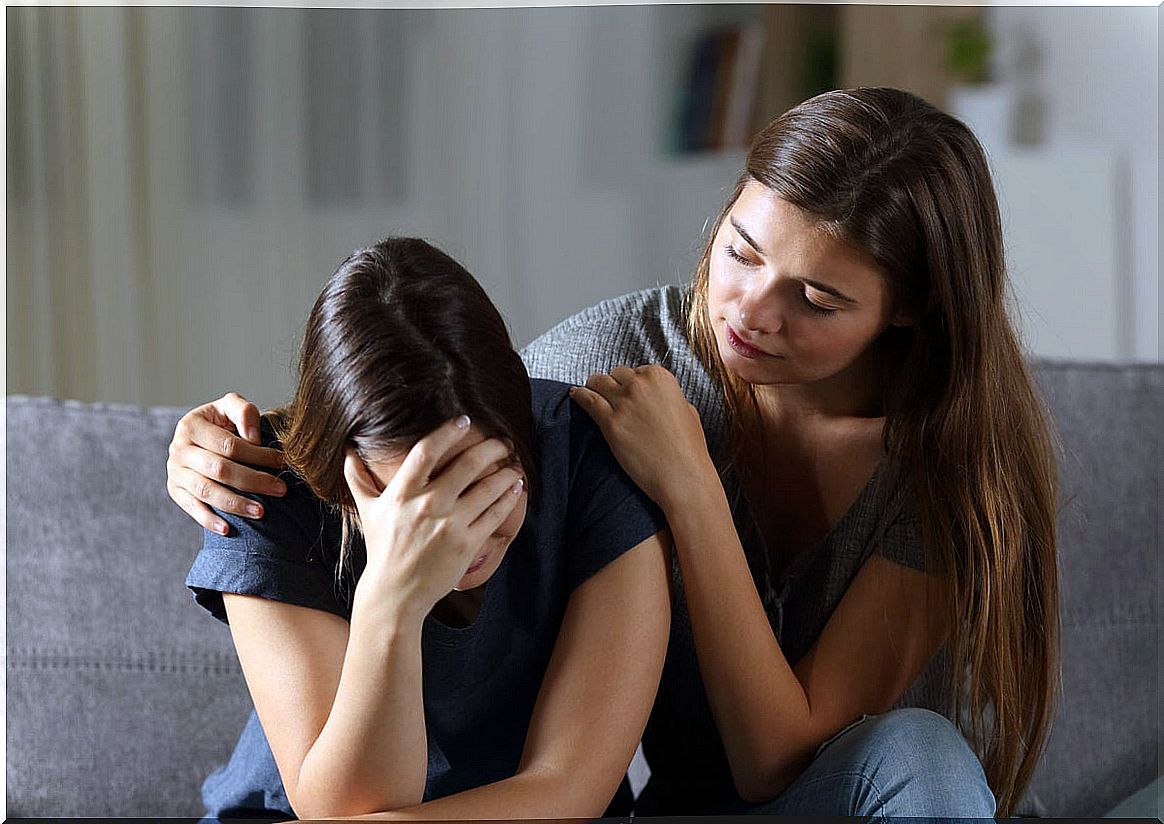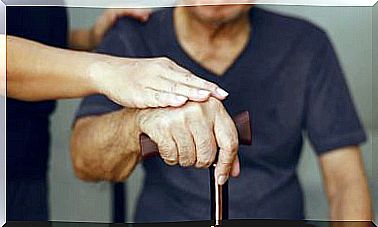Blame In The Duel

We all face grieving processes. More or less intense. Every day on the calendar we win and lose. Sometimes the equation includes circumstances, objects or people that have a significant weight in our life. However, to these farewells, already complicated by the pain caused by the recognition of what will not return, must be added guilt or resentment. Thus, in this article we want to focus on the first: how guilt affects grief.
Thus, a potentially destructive emotion is mixed in some cases with the pain of loss. When this happens, the farewell cannot take place, the story of the past can be filled with studs and the future filled with bitterness. This is why guilt in grief can play such an important role.

The social and religious context
Let us remember that for centuries, in the Western world, religion has had a significant weight. A faith that has affected not only the most mundane issues such as the practice of certain rites, but also h to cast a very particular vision of the world.
He has extended this life to another, eternal life, he has pointed out the existence of an almighty God who looks at us and expects us to behave in a certain way, collected in the sacred scriptures and interpreted by those authorized to apostolate.
On the other hand, this religious vision has largely shaped politics, influencing programs and measures that otherwise might not have been taken or maintained for so long.
Thus, despite the fact that philosophers like Nietzsche have already warned us of the dangers of doctrine, religion remains in the current sphere, and even more so when we talk about farewells. Thus, perhaps many of us have already put religion aside for most issues, but not for when we have to manage the loss of someone who is no longer there.
This is a positive anchor, as virtually no religion dissociates life and afterlife. None speaks of another sphere or life with which the communication channels are still closed. In this sense, just as the deity’s forgiveness is possible or feasible, so is that of the person who is no longer in the sensible world. In fact, in major catastrophes or attacks, religion has been seen to be a protective factor for mental health. In those moments, the sense that the person gives to the loss is more or less realistic, it is already a great step to be able to grant one.
As long as the person thinks that rules still work, it will be more difficult for them to let themselves be dominated by chaos or not to find a silver lining for their pain. Thus, the farewell rituals are a good cushion for suffering, but also an opportunity for redemption, communication and farewell, even to build a shared story.
Guilt in grief: the damage we do not repair
When speaking of guilt in the grieving process, we find two sides. One is the pre- and the other is post-loss.
In the pre, real elements are usually combined. An example would be regret for not having taken more care of the person who is no longer there, for not having paid more attention to them, not having acceded to their wishes or even for having made certain decisions for them when they were not able to do so.
The opportunity to go back to the past and change it does not exist. Here is the temptation to recreate a different one over and over again in our minds. As if by repeatedly correcting it, we could ever truly rewrite it. This mental habit comes at a price in pain, if only the frustration generated by not being able to transcend the limits of our own nature.
Big goodbyes also often cause big earthquakes. Episodes from the past that we thought we left behind may come back and assault us. What we did not say, what we did say and never spoke. Attention is focused on shared experiences, even after not doing so for a long time. Hence these ghosts can appear.

Guilt in grief: emotions that confuse us
The second aspect has to do with unsupported desires. There are chronic patients who need a lot of care. They consume money, time, energy, resources … In many cases, they gradually exhaust the caregiver. Thus, no matter how much we feel the loss, it can also be combined with a feeling of relief that generates guilt.
Feeling this way can be disconcerting. Even that we rethink if we really loved the person who has left. On the other hand, it is a difficult feeling to share with people who have not been with us day by day and come to give us comfort.
We are afraid of what they will think if we open up a dialogue that goes in this direction. We need understanding, normalization, but we are afraid to find the opposite.
In these cases, the fact of having shared the weight of the wear and tear that caregiving produces day to day with another person and talking to them about how we feel can help us. If not, the help of a professional can be very timely. After making the corresponding evaluation, it will provide us with tools to understand that what we are feeling is perfectly compatible with the pain of loss and with a deep love for the person who has left.








